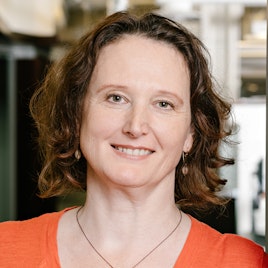For Safe and Effective Drug Policy, Look to the Dutch
By Kasia Malinowska-Sempruch
Why has the Netherlands—a country sometimes viewed as having a permissive approach to drugs—had better results than so many governments with much more strict policies?
A new report by the Open Society Global Drug Policy Program shows how the Netherlands maintained low rates of HIV among people who use drugs and comparatively low cannabis use among young people, all while avoiding the enforcement-heavy measures of its neighbors.
And while the Netherlands’ coffee shops, where cannabis is openly sold and consumed, command the most attention, the benefits of the Dutch model have not received enough focus.
The report includes the following findings:
-
Far fewer arrests for minor drug offenses occur. While it was recently reported that someone is arrested for marijuana possession in the U.S. every 42 seconds, Dutch citizens have generally been spared the burden of criminal records for minor, nonviolent offenses. According to one comparison, in 2005 there were 269 marijuana possession arrests for every 100,000 citizens in the United States, 206 in the United Kingdom, 225 in France, and just 19 in the Netherlands.
-
Lighter enforcement did not lead to more drug use. About 25.7 percent of Dutch citizens reported having used marijuana at least once, which is on par with the European average. In the comparatively strict United Kingdom, the rate is 30.2 percent and in the United States it is a whopping 41.9 percent.
-
While coffee shops generate about €400 million ($512 million USD) in annual revenue their main purposes were public health and social inclusion. Thus, the Netherlands invested heavily in treatment, prevention and harm reduction.
The logic behind the coffee shops is simply not well understood: they were introduced to protect cannabis users from exposure to harder drugs. The theory was that indiscriminate prohibition created a subculture in which users of drugs with vastly different risks are lumped together. Moreover, it was thought that saddling young people with criminal records might push them toward harder drugs.
Because different drugs carry different risks, the government surmised that they should be treated differently. This is known as a “separation of markets.”
Dutch policymakers realized that buying illicit marijuana put users in contact with dealers who also sold harder drugs. As designated commercial sources for marijuana evolved, drug users became much less likely to buy harder drugs from their cannabis sources.
For example, in Sweden, 52 percent of marijuana users report that other drugs are available from their usual cannabis source. In the Netherlands, only 14 percent of marijuana users can get other drugs from their cannabis source, according to European drug monitors. This is largely because the vast majority of cannabis users buy from coffee shops.
In addition, the country has virtually eliminated injecting drug use as a transmission of HIV and enjoys the lowest rate of problem drug use in Europe.
However, the Dutch approach is as vulnerable to politics as any policy. In a climate ripe for populism, interparty squabbles can lead to regressive drug policy approaches. In recent years, ambitious lawmakers or candidates have used drug policy as a wedge issue, attempting to establish more restrictive laws.
Proponents of the international status quo might claim that debates about drug policy in the Netherlands reflect an admission of failure on the part of Dutch lawmakers. This ignores the fact that the policy never failed. In some cases reforms were introduced as a means of dealing with local difficulties. In others, coffee shops represented an easy campaign platform. Yet none of this has undermined the accomplishments of Dutch drug policy or its broad public support.
The report shows the conversations currently underway about marijuana policy in the Netherlands have very little to do with success, failure, public health, or criminal justice. They are about politics.
And that is where the main questions about next steps arise. What comes next may depend on leadership, rather than results in public health and safety. Does the international community have the political will to learn from the lessons of the Netherlands and carry them even further?

Kasia Malinowska-Sempruch is a director of Programs at the Open Society Foundations.


